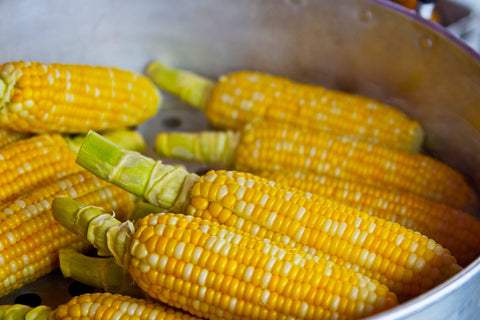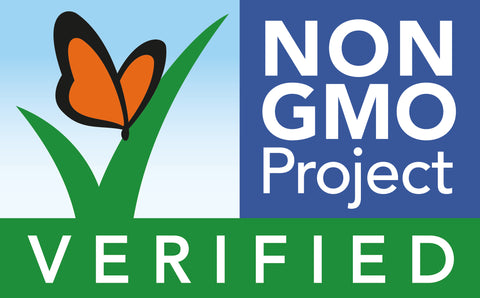
Let's take a look at one of the most common questions that comes in around a popular product: Xylitol.
A lot of people are freaked out by the idea of corn being the source of sugar alcohols (polyols) like Xylitol, most likely as there is so much negative information out there about genetic modification in American corn. They therefore tend to come seeking product derived from birch trees, which is understandable.
Non-GMO Project Verified
Before going into the whole birch vs. corn discussion, it is important to point out that consumers around the world are not accepting of genetically modified products, and our suppliers are certified as Non-GMO Project Verified. We hold copies of their certification, verified by Foodchain ID.

Sustainability
Most consumers are focusing attention to the sustainable impact of products they consume. It takes 40 years for a birch tree to mature, where as corn can be harvested annually, if not faster, making the impact of this on sustainability and production cost is enormous. Birch is not sustainable at all.
Polyols in Food Waste Reduction
An estimated 40% of our food is wasted, so exploring sustainability further we should consider the potential for enzymes to break down and convert all kinds of food waste and plant matter into sugar alcohols (polyols) or biofuels.
There is huge amounts of waste coming out of almost all modern food production (and consumption). Imagine dairy waste such as whey curd, fisheries waste, forestry waste, and so on being harnessed as an asset just as the discarded corn cob is used presently to make sugar alcohols like Xylitol. [Read more about this here.]
Other Discussion Points
With respect to other discussion points on Birch vs. Corn Xylitol, rather than rewrite essentially the same message, I am simply going to point readers toward a great article found at www.naturallysweet.com.au, and paraphrase them here:
End Product: It is the same. Whether derived from birch or corn or anything else, there is no molecular difference.
Taste: There is little difference in taste, and the difference would appear to come from the mesh or granule size rather than actual product difference. Corn-derived Xylitol often being of a finer mesh.
Allergy: Even if allergic to corn, the end product is not corn and does not impact consumption.
Cost: The difference in production cost and consumer price is massive.
Standards: Corn-derived Xylitol [used by Naturally Sweet and Sweetnz] is of a high "pharmaceutical grade", whereas birch-derived product is "food-grade" which is a less rigorous.
Source: Naturally Sweet citing information from Karen book, Sweeten Your Life The Xylitol Way available on Amazon


